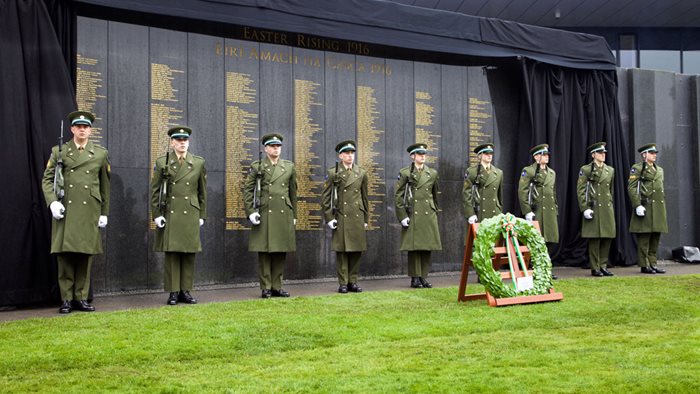
For anyone who had seen RTÉ’s recent drama series Rebellion, they would have realised it perfectly encapsulated the hardship faced by the poorer, lower class of the Irish nation during 1916.
For those poorer families, it often meant that the men of the house, usually the father or elder sons, had to sign themselves over, and fight on behalf of British forces.
More than one third of the British soldier fatalities that occurred during the Rising, were actually Irishmen.
These men were providing for their families in the only way possible. Many missed out on momentous parts of their lives because of their duty – family deaths, the birth of their children, their first steps, first words and final goodbyes.
British men, fighting for British forces, were fighting for their country. It may not have been that they were under the belief that Ireland belonged (and was to remain) under the rule of Great Britain, as many would think in hindsight today.
These men, much like the Irish men that were fighting for Britain, were doing so out of obligation. They also had children, wives, brothers, sisters and parents waiting for them to return, as the payment for their duty rolled in at home. They were providing.
Now, I know Catholicism and the influence of the Church has taken the backseat in the lives of many Irish people today. Regardless of this, if there’s one thing I can recognise in the Irish nation, it’s the respect they have to the deceased and the mourning.
Enemy lines are distant when it comes to death. We forget the past, we forget the wrongdoing that person has done, we forget about nationality, race and religion, all when you’re staring at the name on a headstone.
In this case, the name is on a wall.
The new memorial wall, unveiled at Glasnevin Cemetery last month, bears the names of all who have fallen during the Rising, and yes it includes the names of the British soldiers. Why let their names be forgotten?
They too had a pivotal part in Irish history. They too had a role in the way the foundations of this nation are set out today. They too died a fierce, gruesome and painful death like much of the rebels and Irish civilians during this time.
There’s no sugar-coating the ugliness and violent and unconstitutional aspects of the 1916 Rising, we can all agree on that, but why not honour all of those who gave up their lives not just for their country, but for their families. So that their children, and their children’s children would thrive and live a better life, the one that their forefather’s died for.
Emily Crowley
Image Credit: UTV



Leave a Reply